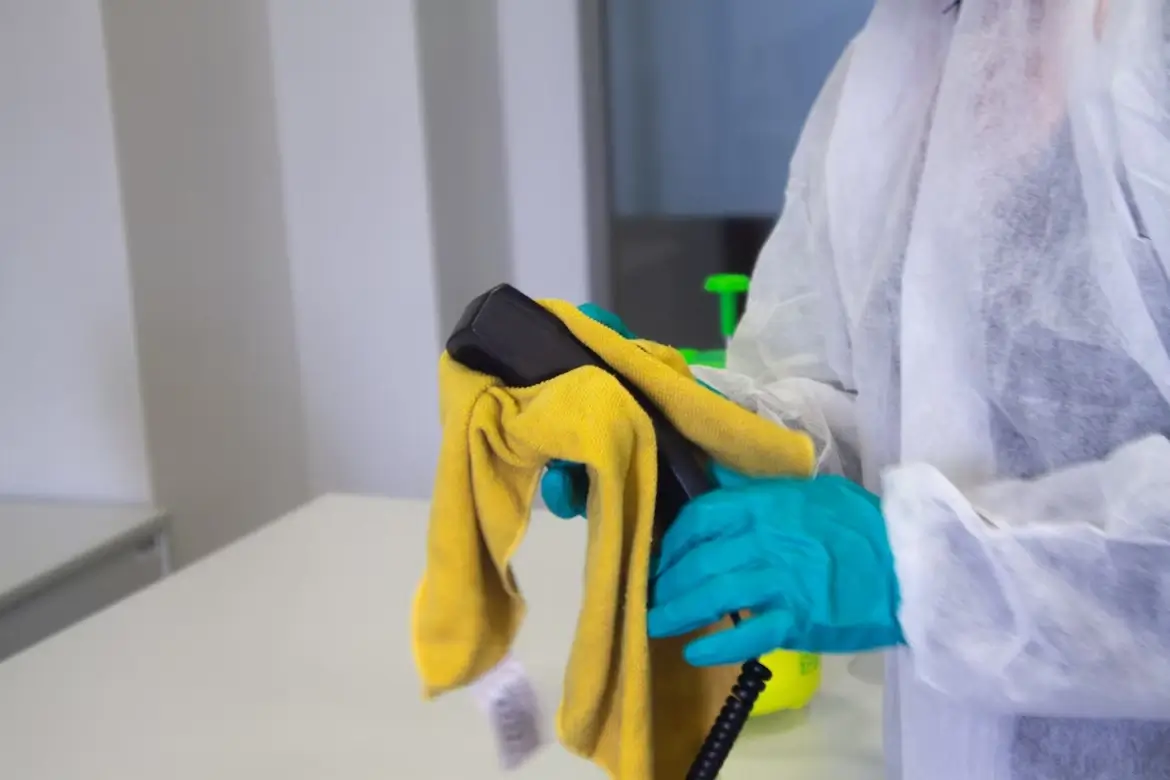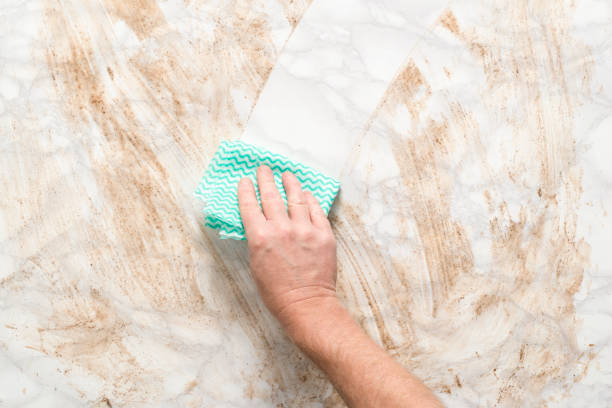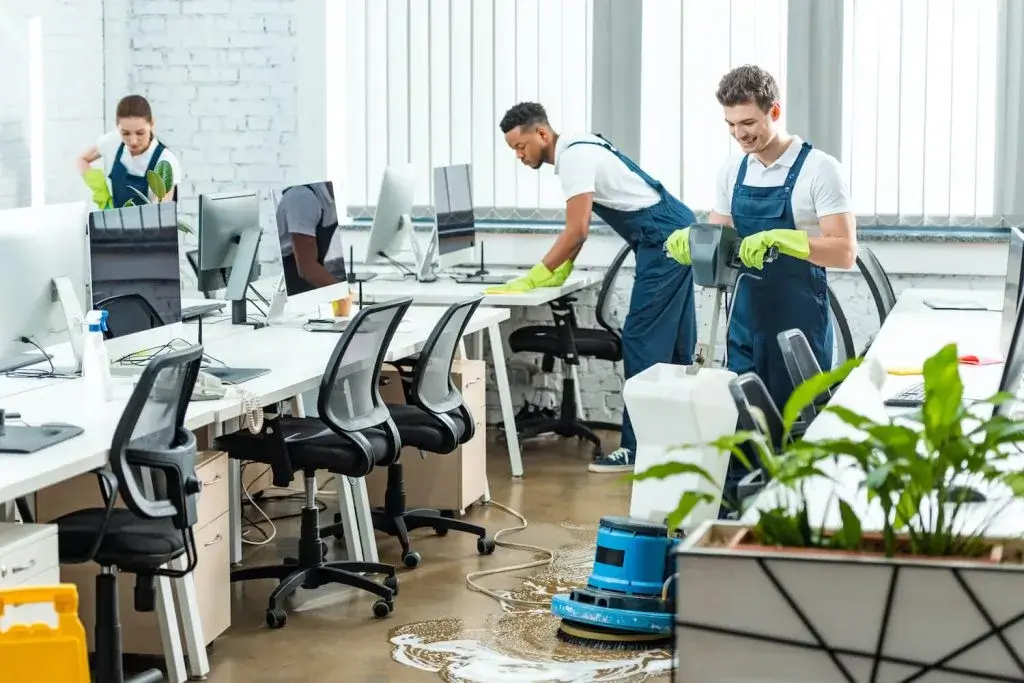Introduction:
Hard water stains can be a persistent nuisance, leaving unsightly mineral deposits on surfaces throughout your home. Fortunately, with the right techniques and tools, you can effectively tackle these stubborn stains and restore the shine to your living space.
In this comprehensive guide, we’ll explore various methods to remove hard water stains, from common household ingredients to commercial cleaners.
Get ready to say goodbye to those pesky marks and hello to a sparkling clean home!
Understanding Hard Water Stains

Before diving into the cleaning process, it’s crucial to understand what hard water stains are and why they occur. Hard water contains high levels of minerals like calcium and magnesium, which leave behind deposits on surfaces when the water evaporates.
These mineral deposits can build up over time, resulting tough hard water buildup and in stubborn stains that are challenging to remove. By understanding the nature of hard water stains, you’ll be better equipped to tackle them effectively.
Preventing Hard Water Stains

Prevention is key when it comes to hard water stains.
By implementing a few preventive measures, you can minimize the buildup of mineral deposits in your home. Consider installing a water softener, which helps remove the minerals responsible for hard water stains.
Additionally, wiping down surfaces regularly and ensuring proper ventilation can go a long way in preventing the formation of unsightly stains.
Essential Tools and Supplies

Before we dive into the cleaning methods, let’s gather the necessary tools and supplies to effectively remove hard water stains.
You’ll need the following:
- Baking soda
- White vinegar
- Spray bottle
- Microfiber cloths
- Scrub brush or old toothbrush
- Lemon juice
- Distilled water
- Commercial cleaners (optional)
Having these items on hand will make the cleaning process more efficient and help you achieve the best results.
Method 1: DIY Cleaning Solutions

- Baking Soda and Vinegar Paste:
- Create a paste by mixing baking soda with distilled water.
- Apply the paste to the stained area and let it sit for 15 minutes.
- Scrub the area gently with a scrub brush or old toothbrush.
- Rinse with clean water and wipe dry.
- Vinegar and Water Solution:
- Fill a spray bottle with equal parts white vinegar and distilled water.
- Spray the solution onto the affected surfaces.
- Let it sit for a few minutes, then scrub gently with a cloth or brush.
- Rinse with clean water and wipe dry.
Method 2: Commercial Cleaners

If the DIY methods don’t provide satisfactory results, consider using commercial cleaners specifically formulated for hard water stain removal.
Follow the manufacturer’s instructions and use protective gear if required. Some effective commercial cleaners include:
- Bar Keepers Friend: This gentle abrasive cleaner helps remove tough stains from various surfaces.
- Rust Remover: Ideal for removing rust stains caused by hard water deposits.
- Cleaning Vinegar: A stronger version of regular vinegar, it can tackle more stubborn stains.
- Hydrogen Peroxide: Effective for removing mineral buildup on glass surfaces.
When using commercial cleaners, always test them in a small, inconspicuous area first to ensure they won’t damage the surface.
Method 3: Specialized Cleaning Techniques

In addition to DIY solutions and commercial cleaners, certain surfaces require specialized cleaning techniques.
Here’s how to address get rid of hard water stains on specific surfaces:
Glass Shower Doors
- Lemon Juice and Baking Soda:
- Squeeze fresh lemon juice onto the glass shower doors.
- Sprinkle baking soda over the lemon juice.
- Gently scrub the stains using a sponge or soft cloth.
- Rinse with clean water and wipe dry.
- Vinegar Soak:
- Soak a cloth in undiluted vinegar and drape it over the stained areas.
- Let it sit for 30 minutes to an hour.
- Scrub the stains with a non-abrasive sponge or brush.
- Rinse thoroughly with clean water and wipe dry.
Faucets and Showerheads
- White Vinegar Soak:
- Fill a plastic bag with white vinegar.
- Secure the bag around the faucet or showerhead using a rubber band.
- Let it soak for a few hours or overnight.
- Remove the bag and scrub the stains with a toothbrush or cloth.
- Rinse with clean water and wipe dry.
Toilet Bowls
- Vinegar and Baking Soda:
- Pour one cup of vinegar into the toilet bowl.
- Add one cup of baking soda and let the mixture sit for 10 minutes.
- Scrub the stains with a toilet brush, paying extra attention to the waterline.
- Flush the toilet to rinse away the loosened stains.
Remember to always follow safety precautions when using cleaning agents and protect your skin and eyes by wearing gloves and goggles if necessary.
Maintenance Tips for Stain-Free Surfaces

To maintain a stain-free environment, implement these simple tips:
- Wipe down surfaces regularly with a soft cloth or sponge to prevent mineral buildup.
- Use mild acids like lemon juice or vinegar for routine cleaning.
- Dry surfaces thoroughly after cleaning to prevent water stains.
- Consider using water softeners to minimize the impact of hard water.
- Follow a regular cleaning schedule to prevent stains from becoming stubborn and difficult to remove.
Conclusion:

By implementing the techniques outlined in this guide, you can confidently tackle hard water stains and restore the shine to your home.
Whether you choose DIY cleaning solutions, commercial cleaners, or specialized techniques, remember to always follow the recommended safety guidelines and test cleaning agents on a small area first.
With a little effort and the right approach, you’ll be able to get rid of hard and to enjoy a sparkling clean living space, free from the frustrations of hard water stains.






